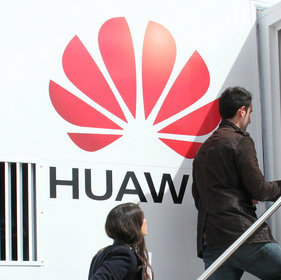Also in today's EMEA regional roundup: Ukrainian government considers moving data to safety; ETNO calls for more coordination to defend against increased cyberwarfare risk; Zain, BT in reality check.

Also in today's EMEA regional roundup: Ukrainian government considers moving data to safety; ETNO calls for more coordination to defend against increased cyberwarfare risk; Zain, BT in reality check.
Huawei is once again feeling the heat of European disapproval after two non-executive directors resigned from its UK unit in protest at the vendor's wishy-washy stance on Russia's invasion of Ukraine. As the BBC reports, Sir Andrew Cahn and Sir Ken Olisa, who joined Huawei UK's board in 2015 and 2018 respectively, were understood to have decided that the company's reluctance to explicitly condemn the Russian invasion rendered their positions untenable. Huawei's stance and continued operation in the Russian market is at odds with a number of other big technology firms – Ericsson and Nokia among them – who have suspended operations there. (See Huawei carries on in Russia as other Chinese firms wait and see, How Western sanctions will hurt Russian telecom and tech and The slow death of Huawei's European fixed business has begun.)
A senior cybersecurity official within the Ukrainian government has admitted that its IT infrastructure may need to be moved to another country to protect sensitive data if Russia's invasion pushes much further into the country. As Reuters reports, Victor Zhora said: "We are preparing the ground. Plan A was to protect IT infrastructure within Ukraine. Removing it to a another country would only be a 'Plan B or C'." Equipment and backups have already been shifted to more secure areas of Ukraine beyond the current reach of the Russian invaders, officials said.
And the madness in Ukraine has also prompted the European Telecommunications Network Operators' Association (ETNO) to call for stronger European coordination to help protect networks against further aggressive cyberwarfare strategies being pursued by rogue states such as Russia. In a statement, ETNO said: "While the current regulatory landscape provides numerous means for telcos to step up to the plate … stronger coordination of cybersecurity agencies and competent authorities across Member States in particular … are necessary."
Vivendi, the French media conglomerate, revealed in its full-year 2021 results that it took a €728 million (US$805 million) writedown on its stake in beleaguered Telecom Italia (TIM), a financial ding that, in the words of Vivendi's earnings statement, took account of "the economic uncertainties and strategic changes that could affect Telecom Italia's outlook." Last TIM's new CEO, Pietro Labriola, revealed a plan to split the operator into two separate units, paving the way for a likely rejection of a takeover bid from investment firm KKR. (See Telecom Italia plans to do the splits.)
Likely bouts of nausea notwithstanding, Kuwait-based Zain Group is clearly keen to enter the "metaverse," and has signed a deal with virtual reality headset firm HTC VIVE, which will make VIVE's devices available via the Zain e-commerce platform.
In a similar vein, British operator BT and its mobile arm EE have unveiled prototype 5G-based "experiences" which use everyday devices such as smartphones and tablets as well as augmented reality headsets to offer users a chance to get more immersed in whatever's on their screens. For example, rugby nuts can treat themselves to "data-rich AR insights" relating to ball trajectories and kick distances, should they so desire, while musicians and other artists can remotely engage with students in a more streamlined manner than is currently possible. The prototypes are the first outputs from an EE and BT Sport-led project, 5G Edge-XR, which seeks to demonstrate how EE's 5G network, combined with cloud graphics processing units, can enable consumers to view events in new ways.
— Paul Rainford, Assistant Editor, Europe, Light Reading
Read more about:
EuropeAbout the Author(s)
You May Also Like











